The Kenyan National Ultimate Frisbee Team is trying to become the first African team ever to attend the World Championships of Beach Ultimate (WCBU) next year in Dubai. Read their story below, find out more at kenyafrisbee.weebly.com and donate at youcaring.com/KenyaFrisbee.
Meet Team Kenya
As I watch the Kenyan National Ultimate team practice together for the first time, the excitement is palpable. The flow is quick and chemistry is converging before my eyes. Oswe turns and dumps to Allan who swings crisply to Josphat who stomps his right foot while launching a full-field flick to Clement’s streaking frame of prototypical lanky power. After practice, Clement Masakhwe, a medical student from Kakamega and Team Kenya’s best deep cutter, nervously confesses his addiction: “A week without playing ultimate makes me feel sick – that’s how serious I am into this game. Representing Kenya at the WCBU 2015 in Dubai is something I’ve started dreaming about every night. It’s becoming impossible to kick this thinking out of my mind.”
The Kenyan National Ultimate Team is a collection of bright, compassionate and incredibly talented young men from many different parts of Kenya who were selected to play in the World Championships of Beach Ultimate (WCBU) next March in Dubai. Their ancestral tribal roots are very diverse – the team has players of Luo, Kikuyu, Kisii, and Luhya origins – tribes that have clashed throughout recent history. But ultimate brings these guys together like nothing else in their lives, working as a team of equals, encouraging and laughing with each other.
Clement started playing ultimate three years ago and has used his football background to progress quickly. “Frisbee is so fun and exciting. I love the exercise, and having various options to command the disc with my throws is simply joyous.”
Josphat Nyataya, co-captain of Team Kenya from Nakuru town and a rock-solid handler, “loved the sport at first sight. The friendliness of the players surprised me and made me more at ease.” He lives in Kisumu and is also the co-captain of Kisumu Frisbee Club, reigning champions of the biggest tournament in East Africa, called FEAST. “In Kisumu we have been able to get a good mix of male and female players, even ladies who don’t normally fancy sports and guys who usually can’t afford them.”
Due to its accessibility, ultimate is a perfect sport for low-income places like Kenya. The only piece of equipment required is a disc, which is inexpensive and lasts for a long time. In a country where the average annual income is $862, this is a very important point. As explained by Dr. John Waitumbi, the senior member of Team Kenya known as ‘Daktari’ by his local teammates: “In Kenya, sports tend to be inaccessible for people from low economic backgrounds. Frisbee doesn’t require any skills that most people can’t attain, and anyone can play.”
Al-Karim Mitha, a native Kenyan of Ismaili Muslim Indian heritage, says: “I love that anyone can play this game. Growing up in Kenya and Canada, I’ve seen and played a lot of different sports, and this one is really special. It could have great potential here in Kenya.” Al-Karim is Team Kenya’s friendly giant who will sky players and then buy them a beer. Be ready.
To those who know it well, ultimate is a symbolic force of peace and friendship. This aspect is important to Mishael Oswe, a Kisumu native who is emerging as a key versatility player and veteran leader of Team Kenya. Since he started playing ultimate three years ago, “I have met many new friends both in Kenya and outside the country. I like going to Uganda to play, which increases our interaction with new chaps.”
The spirit of the game has been instilled strongly in Kenya and is a highly-cherished part of the sporting experience. Allan Lemtudo, an enigmatic perpetual joker off the field with incredible on-field tenacity, comes from West Pokot in the arid Northwestern part of Kenya. “It really fascinated me at first that the sport could be played without a referee, with just the spirit of the game. As days went by, it turned out to be the best game I could have played.”
As a self-officiated game, ultimate encourages dialogue, collective leadership, transparency, accountability to both your teammates and opponents, and a calm sense of diplomacy. It crosses borders and cultures with ease, always bringing people together through sport instead of dividing them. Dr. Waitumbi points out that “there is a lot of value in ultimate’s culture of listening to the opponent’s point of view.”
Ultimate as a unifying force
Moses Braviton, a Nairobi native and Team Kenya’s youngest and quickest player, sees ultimate as much more than just a game, insisting that it has special significance in Kenya: “It is a peacemaking game, which is important here compared to other countries. I think ultimate frisbee could help with our problems of tribalism, as well as just bringing together rich, poor, learned, unlearned, white, black and brown people.”
Team Kenya’s seven Kenyan-born players have all lived through major violent ethnic conflict in their homeland. Kenya is home to 42 different tribes of native African Kenyans. Many of those tribes have a dark and brutal history of violent conflict in the last few decades, fueled by many factors including divisive colonial policies, political manipulation, land and resource scarcity, cattle raiding and terrorism fears, to name a few reasons.
In 1992, 5,000 people were killed and 75,000 displaced (source: UN IRIN) as a result of tribal violence between two tribes, one in the Rift Valley and another in Central Kenya. More recently, after a disputed election in 2007, Kenya exploded in violence in a chain reaction of politician-instigated escalation. Election fraud was alleged by both main parties, each backed by supporters along clear and hostile tribal lines. Peaceful protests gave way to riots, riots gave way to mass murder, and within a few months 1,300 people were killed and about 600,000 displaced (source: Al-Jazeera News). Political leaders from both sides directly accused each other of ethnic cleansing and genocide, and the resolution was tenuous at best even after international mediation.
In 2014, Kenyans still avoid controversial political discussions, and tribal violence is only mentioned in whispers if at all because the memories are still fresh. Entire cities hold their breath in fear of chaos whenever divisive political leaders barge into town exploiting historical tribal animosities to boost their own power and sated egos.
Team Kenya’s players see ultimate as being a step in the right direction for the national healing process. As Clement points out, “Our country’s major undoing has been opposing political stances that fuel ethnic animosity. But you can see from our local ultimate club that people of different ethnic backgrounds, age, and economic status have come together to form a very cohesive team with great ambitions.” Allan adds, “there is so much negativity around people’s differences, and ultimate lets people forget all of that and have fun together, appreciating their diversity.”
Oswe sees valuable lessons in ultimate that can apply to broader society: “We can all learn from the way ultimate is played: on the basis of the spirit of understanding, agreement, sportsmanship and fair play. There is so much significance of that, for different communities to share these values and ideas that culminate in peace, love and unity.”
Josphat sees the potential for societal benefit if the sport grows: “The Kisumu team has players from at least six different tribes despite the fact that Kisumu is predominantly Luo. If the game can be publicized to become a major sport like football, it might help change the tribal dynamics in the country.”
The ultimate scene in Kenya is small but growing quickly. There are about 100 to 150 players clustered in 3 major frisbee hotspots: Nairobi, Kisumu and Bungoma. The Nairobi scene has a university team, and the Kisumu club team is cultivating a program that reaches out to local schools and church groups to teach and recruit new players. Even though the scale of the sport is still small, the players believe the sport is on the verge of breaking out in Kenya, and it just needs to be nudged over the edge.
WCBU attendance the key to the sport’s development
I have been living in Kenya for over a year and I see that these players have some real potential; not only to be great players, but to come back from WCBU 2015 as role models for the whole Kenyan ultimate community and really transform it. Kenyan players have never played elsewhere so they’ve never had direct exposure to the broader sport. Beau liked our team’s small Facebook page and mentioned us on his blog, and it was impossible to convey the significance to my teammates. They have no idea what the AUDL is, why Iberian hat tournaments so crazy fun, and they’ve never played against real American firepower, Japanese small-ball, German precision or Venezuelan flair. Most importantly, they’ve never experienced the global ultimate community.
It is critical for them be able to see all of this at WCBU 2015 so that they can bring it all back to Kenya and sow the seeds for real grassroots development of the sport in Kenya. Sustainable development of ultimate in Kenya must be done by Kenyans. I (and many other expats in the past) have done my best to grow the scene during my time here, but as an outsider, my time and abilities are limited, and my actions are inherently unsustainable.
Kenyan ultimate is now in the hands of my teammates. They already love ultimate; now they need to experience a world championship. In the end, Clement sums it all up perfectly with a smile and a good question: “Man, what else could one need from a game?”
Hometowns of the Team Kenya players:
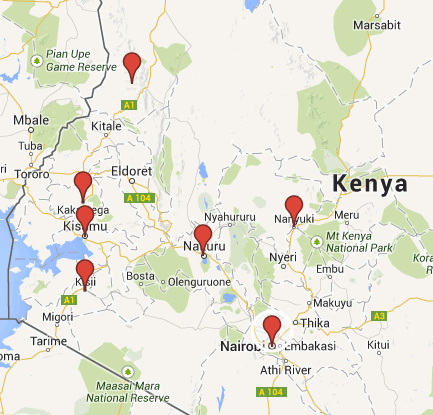
Team Kenya has raised over $3000 towards their goal of attending WCBU, but still need $6000 to cover travel costs, food and accommodation. Those interested in helping out can donate at youcaring.com/KenyaFrisbee.
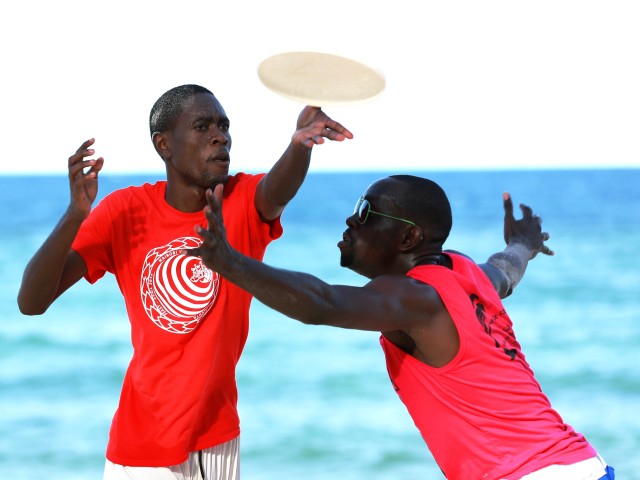
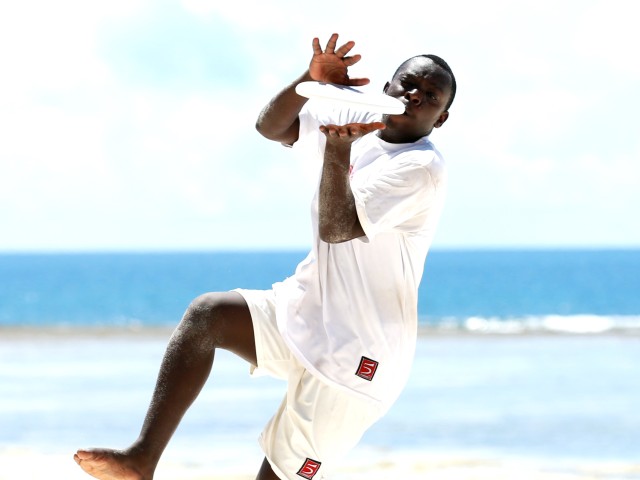
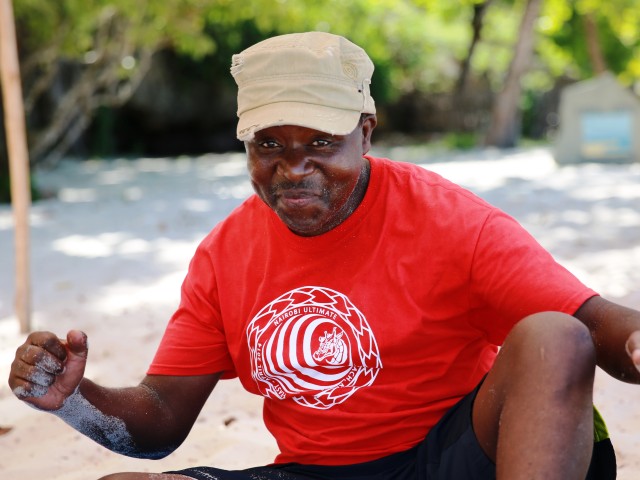
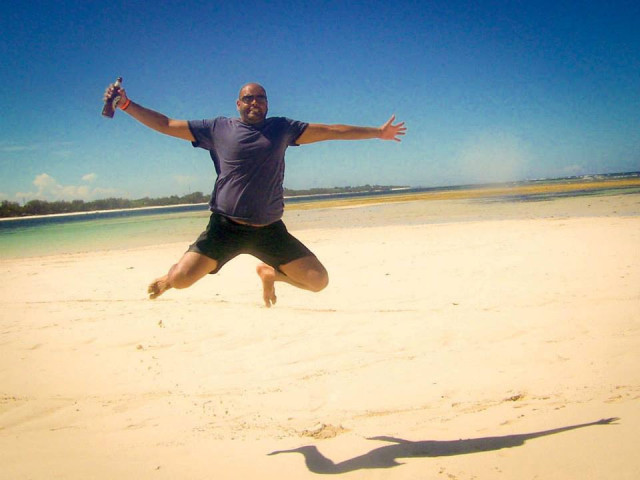
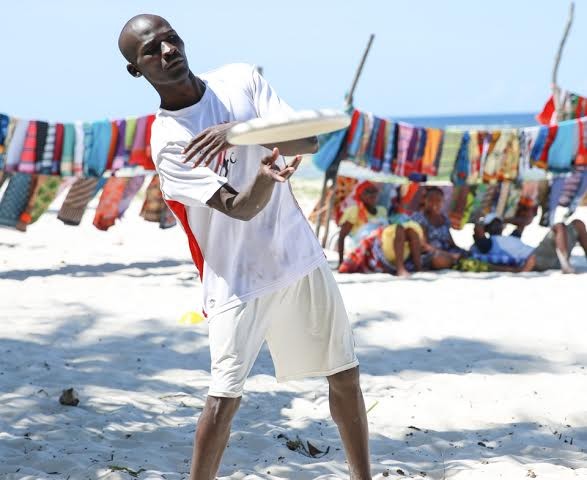
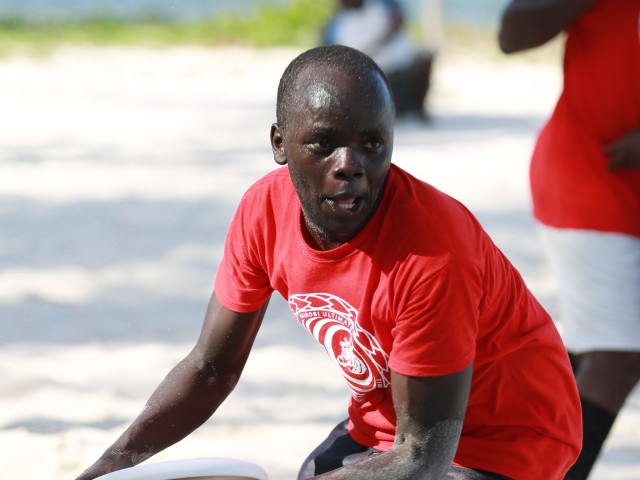
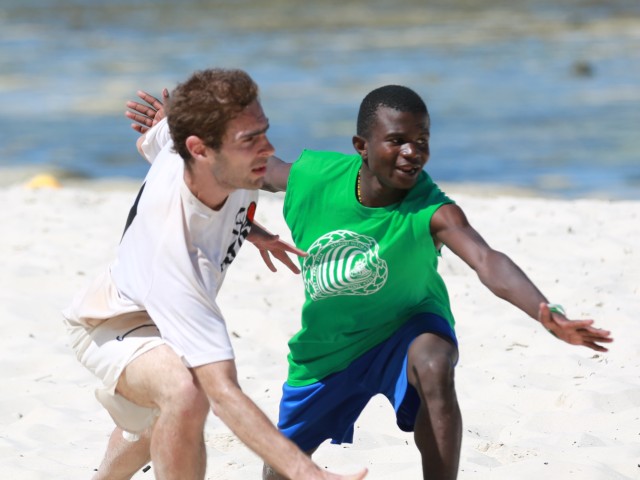





Comments Policy: At Skyd, we value all legitimate contributions to the discussion of ultimate. However, please ensure your input is respectful. Hateful, slanderous, or disrespectful comments will be deleted. For grammatical, factual, and typographic errors, instead of leaving a comment, please e-mail our editors directly at editors [at] skydmagazine.com.